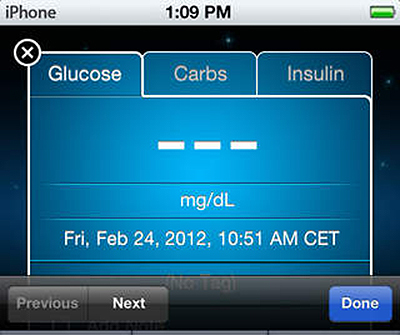The FDA issued final guidance on mobile apps Monday, saying it will focus only on a subset that present the greatest risk to patients if they don’t work correctly.
Under a discretionary approach, the agency said that it will not enforce requirements under the Federal Drug & Cosmetic Act for the majority of mobile apps, as they pose minimal risk. Marketing-centric apps like disease journals, tracking logs, carb counters—anything that does not entail patient-level data—would seem to fall into this broader category.
Apps requiring oversight (i.e., marketing approval) are those “that are intended to be used as an accessory to a regulated medical device,” or that “transform a mobile platform into a regulated medical device,” the FDA said, defining these as “mobile medical apps” that can carry significant risks if they do not operate as intended.
The agency, which issued draft guidance on mobile medical apps in July 2011, said it received more than 130 comments, and that respondents “overwhelmingly supported” a tailored, risk-based approach.
“We have worked hard to strike the right balance, reviewing only the mobile apps that have the potential to harm consumers if they do not function properly,” said Jeffrey Shuren, MD, JD, director of the FDA’s Center for Devices and Radiological Health, in a statement.
Mobile medical apps that undergo FDA review will be assessed using the same regulatory standards and risk-based approach that the agency applies to other medical devices, the statement added.
“Our mobile medical app policy provides app developers with the clarity needed to support the continued development of these important products,” said Shuren. The agency said it has cleared about 100 mobile medical applications over the past decade, about 40 of them in the past two years.
For example, WellDoc’s DiabetesManager—an app for chronic disease management which collects data and provides real-time feedback and coaching for patients and clinical decision support for clinicians—gained FDA approval as a Class II medical device in 2010.
AliveCor, a heart monitoring device and app that fits to the back of a phone and takes readings when the user places two fingers on its sensors, was approved by the agency in 2012.
Others, such as Sanofi and AgaMatrix’s iBGStar, a device plus app for monitoring diabetes and sharing data with doctors, have attracted attention from drug makers.
From the November 01, 2013 Issue of MM+M - Medical Marketing and Media








